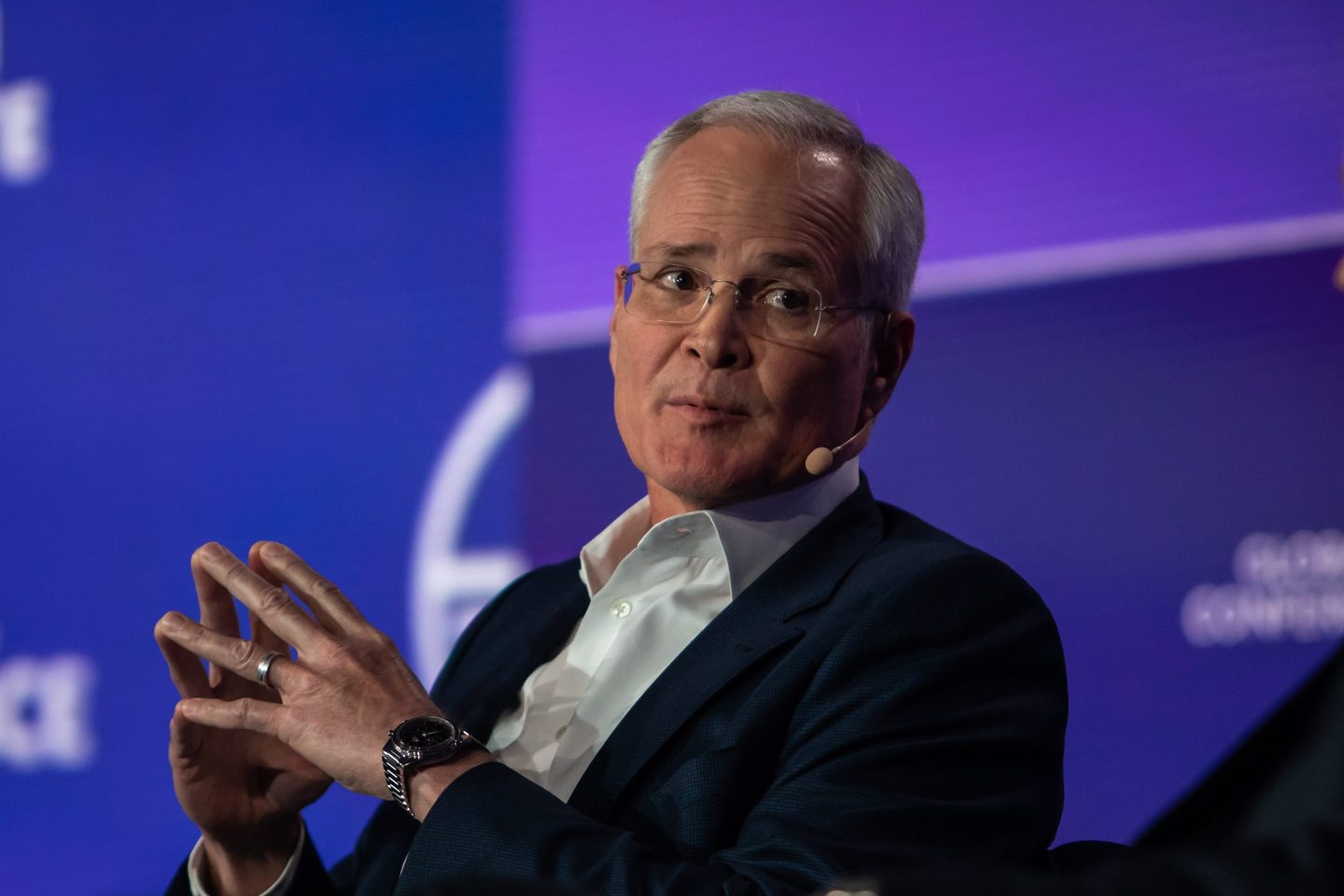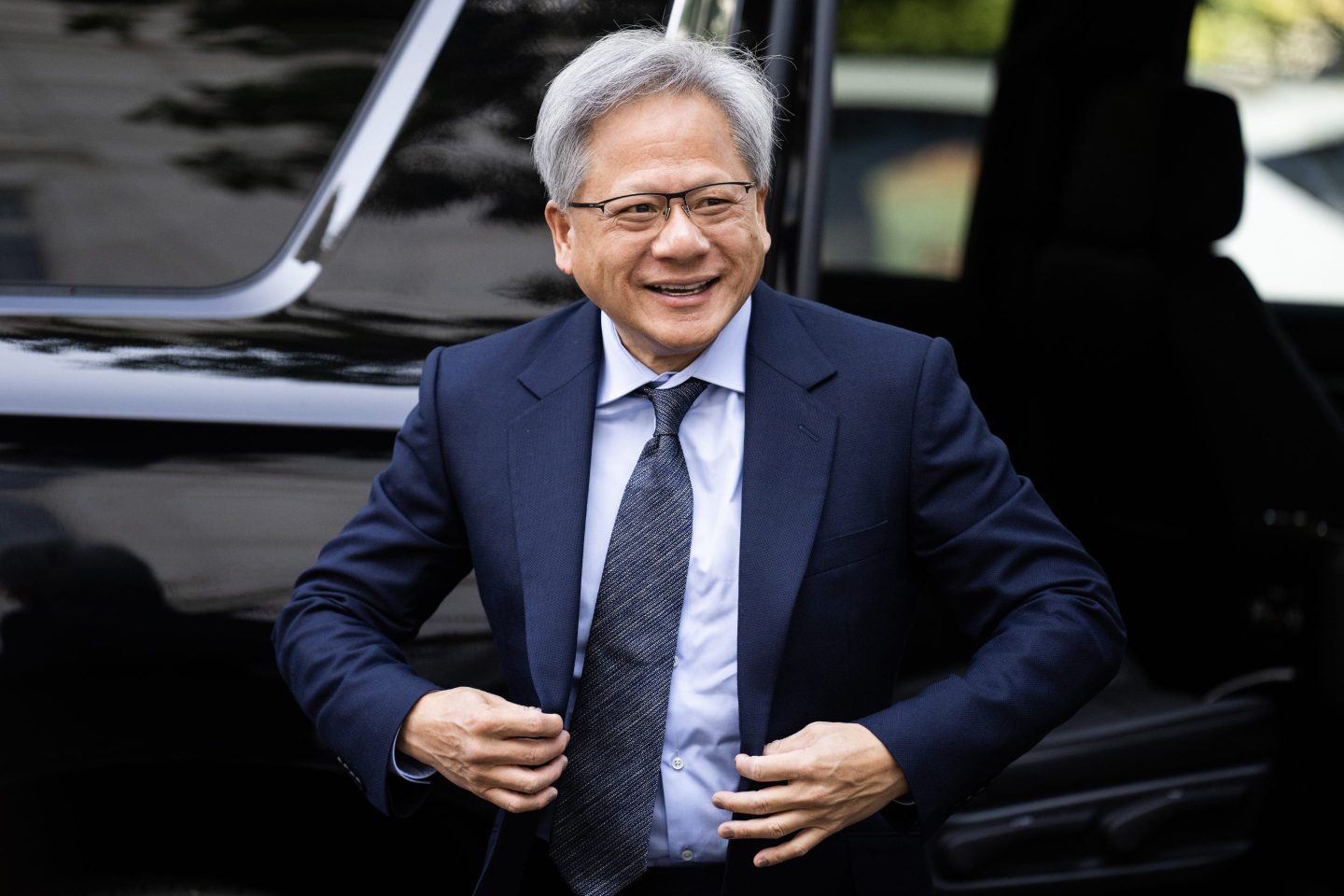Good morning. Artificial intelligence is set to transform finance. Companies are increasingly seeking to hire CFOs with AI competency. Meanwhile, there’s competition for AI talent. Erika James, dean of the Wharton School at the University of Pennsylvania, thinks there should be a pipeline of future business leaders who understand how to leverage this technology.
James announced in a LinkedIn post on Wednesday that an undergraduate concentration and an MBA major in Artificial Intelligence for Business will be offered in the next academic year.
“It is no longer a question of if, but how artificial intelligence will fundamentally alter every aspect of business and society,” James said in a statement. Business schools play a “crucial role” in making sure that AI adoption will “lead to positive outcomes,” she said.
The curriculum will include courses on applied machine learning, data science, neuroscience, data engineering, and statistics, according to Wharton. There will also be a required ethics course led by Kevin Werbach, director of the Accountable AI Lab. The statistics and data science department, along with the operations, information, and decisions department will jointly administer the program.
“Companies are struggling to recruit talent with the necessary AI skills,” Eric Bradlow, vice dean of AI and Analytics at Wharton said in a statement. Students also want to gain hands-on experience, he said. “Wharton is uniquely positioned to lead as we collectively confront the myriad of challenges and opportunities AI poses.”
Wharton is one of the top schools producing the CFOs of Fortune 500 and S&P 500 companies, according to Crist Kolder Associates’ Volatility Report. An analysis of 671 companies finds that more sitting CFOs hold an MBA (50%) than a CPA (37%).
Meanwhile, AI is set to reshape the role of both CFOs and the finance organization as a whole. During a recent McKinsey podcast, tech veteran and OpenAI CFO Sarah Friar was asked what the finance function will look like in five years.
“I really hope we will move completely to the point of being the home for business insights, driving the business to go bigger and faster,” Friar said. “I want to be able to look at my team and see that everyone is in that mode of forward-thinking and insight-driven work and that a lot of the work we do today becomes rote work that gen AI does for us.”
The incorporation of technology in finance could be a pivotal part of attracting talent. Tech-savvy young professionals use AI in their daily lives, so they’ll want to do the same in the workplace.
Sheryl Estrada
sheryl.estrada@fortune.com
Leaderboard
Jay Voncannon was appointed CFO of Arq, Inc. (Nasdaq: ARQ), a producer of environmentally efficient carbon products, effective April 2. Voncannon, a veteran finance executive with over 35 years of experience, most recently served as CFO of CoorsTek, Inc. Before that, he served more than 20 years as a senior finance executive at Koch Industries and its affiliates.
Phillip E. Podgorski was named CFO of TechPrecision Corporation (Nasdaq: TPCS). Podgorski was previously the CFO for the RTX Technology Research Center, a division of RTX Corporation, since 2013.
Big Deal
President Trump announced a complex package of tariffs on Wednesday including a broad 10% duty on all imports and a sliding scale of “discount reciprocal tariffs” the President said would be “kind” to other countries while bringing relatively greater wealth to the U.S., Fortune reported. Those include a 34% tariff on goods from China and 20% on those from the EU, plus a raft of other percentages for Vietnam, Taiwan, Japan, India, and Indonesia.
Shares of U.S. companies that rely on Asian supply chains plunged, with Nike falling about 9% in pre-market trading on Thursday.
Going deeper
Private sector employment increased by 155,000 jobs in March, according to the ADP National Employment Report. Manufacturing delivered stronger-than-average job gains for the second straight month, the researchers found. Meanwhile, construction hiring slowed. And natural resources and trade, transportation, and utilities lost jobs.
Year-over-year pay gains slowed to 4.6% for those who remained at their job and to 6.5% for job changers. The pay premium for job changers was 1.9 percentage points, which matches a series low last seen in September, according to the report. The ADP National Employment Report is an independent measure of the private-sector labor market based on payroll data of more than 25 million U.S. employees.
The Bureau of Labor Statistics report for March 2025 employment data will be released on Friday morning. This report includes government jobs.
Overheard
“We would characterize this slate of tariffs as ‘worse than the worst case scenario’ the Street was fearing.”
—Wedbush Securities analysts wrote in an industry note on Wednesday following President Trump's announcement on tariffs.













